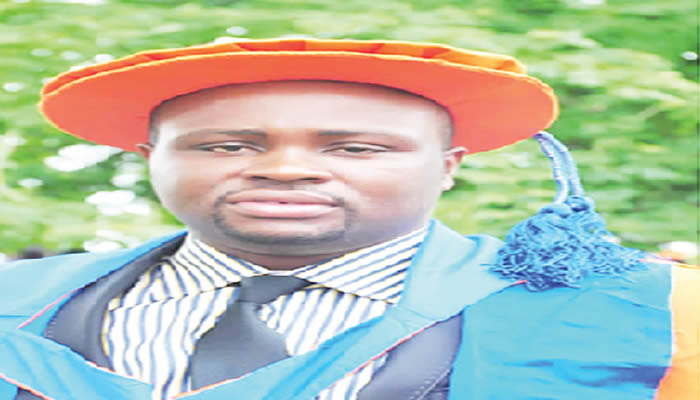The Congress of University Academics (CONUA), Nnamdi Azikiwe University (UNIZIK) chapter, has lodged a formal complaint against the university’s administration, alleging discriminatory practices in the disbursement of the Earned Academic Allowance (EAA). The contention centers around the alleged exclusion of CONUA members from the EAA payment, with the union claiming that the university management, in collusion with the Academic Staff Union of Universities (ASUU), intends to distribute the funds solely to ASUU members. This action, CONUA argues, constitutes a breach of fair practice and disregards the government’s intention for the EAA to benefit all academic staff, irrespective of union affiliation. The petition, submitted by CONUA’s legal counsel, emphasizes the existence of three recognized academic unions in Nigerian universities – ASUU, CONUA, and the National Association of Medical and Dental Academics (NAMDA) – and underscores the right of lecturers to choose their affiliation or remain independent. The EAA, they argue, is designed to alleviate the challenges faced by all academics and should not be wielded as a tool for discrimination.
CONUA’s petition specifically accuses the acting Vice-Chancellor, Prof. Carol Arinze-Umobi, and the Bursar of conspiring with ASUU to divert the EAA funds, transferring the responsibility of disbursement to ASUU leadership. This, CONUA alleges, creates a high risk of misappropriation and further marginalizes CONUA members. The union insists that the university management adhere to established guidelines for EAA disbursement, ensuring that all deserving academic staff, including CONUA members, receive their rightful share. The petition serves as a stern warning, with CONUA expressing its readiness to pursue legal action to protect its members’ interests and ensure equitable distribution of the allowance.
The core issue revolves around the interpretation and implementation of the EAA policy. CONUA emphasizes the universal nature of the allowance, intended to compensate all academic staff for their contributions. They challenge the alleged agreement between the UNIZIK management and ASUU, framing it as a discriminatory practice that violates the principles of fairness and equal treatment. The alleged plan to channel the funds through ASUU raises concerns about transparency and accountability, with CONUA expressing apprehension about potential mismanagement and biased distribution. The petition underscores the broader issue of union rivalry within the university system and the potential for such conflicts to affect the welfare of academic staff. CONUA’s stance asserts the importance of adhering to government guidelines and ensuring that the EAA serves its intended purpose of supporting all academic staff, regardless of union affiliation.
The EAA itself represents a significant component of the N50 billion allocated by the Federal Government to address earned allowances for both academic and non-academic staff in Nigerian universities. This fund is meant to cover outstanding arrears and acknowledges the contributions of university staff. However, its distribution has become a point of contention, sparking disputes among unions, particularly regarding the sharing formula. CONUA’s petition highlights the challenges associated with implementing such a large-scale disbursement and the potential for disagreements over allocation criteria. The situation at UNIZIK exemplifies the broader issue of union dynamics and the complexities of ensuring equitable distribution of resources within the university system.
CONUA’s petition serves as a call for transparency and accountability in the management of the EAA funds. By challenging the alleged agreement between UNIZIK management and ASUU, CONUA seeks to ensure that the allocation process adheres to established guidelines and principles of fairness. The petition emphasizes the importance of including all eligible academic staff in the disbursement, regardless of their union affiliation. The union’s willingness to pursue legal action underscores its commitment to protecting its members’ interests and advocating for equitable treatment within the university community. The situation at UNIZIK reflects the ongoing challenges faced by Nigerian universities in managing resources and navigating the complex relationships between different unions.
The dispute over EAA distribution at UNIZIK highlights the broader issue of union representation and the potential for conflict when multiple unions exist within the same institution. CONUA’s petition emphasizes the need for clear guidelines and transparent processes to ensure that all eligible staff members receive their rightful share of allocated funds. The alleged collusion between UNIZIK management and ASUU raises questions about the impartiality of the disbursement process and the potential for marginalizing members of other unions. CONUA’s stance underscores the importance of recognizing the rights of all academic staff, regardless of their union affiliation, and ensuring that allocation decisions are based on objective criteria rather than union membership. The situation calls for a comprehensive approach to resource management within universities that promotes fairness, transparency, and accountability.
The case of CONUA at UNIZIK highlights the complexities of union dynamics and the need for clear and equitable mechanisms for distributing resources within the university system. It underscores the importance of upholding the rights of all academic staff and ensuring that allocation decisions are made in a fair and transparent manner. The petition serves as a reminder that the intended purpose of the EAA is to support all academic staff in their endeavors and that its distribution should not be influenced by union affiliations or internal agreements that may disadvantage certain groups. The situation calls for ongoing dialogue and collaboration among university stakeholders to develop robust and equitable systems for resource allocation that benefit all members of the academic community.


